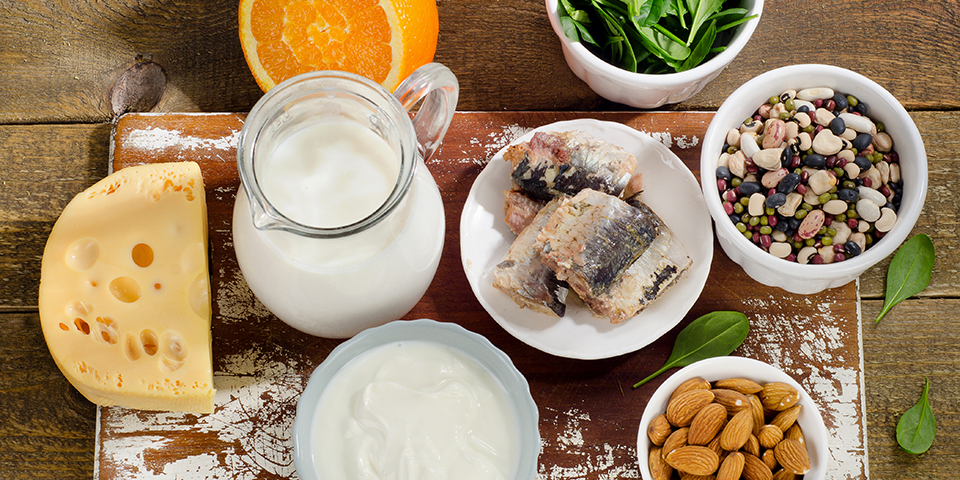
Calcium is essential for healthy bones, teeth, and heart function. As kids, we were always told to drink plenty of milk, a popular source of calcium, to ensure we grow up big and strong. However, there’s more to this mineral than just strong bones. Although 99% of the body’s calcium is stored in our bones, it’s involved in various body areas, from blood clotting to muscle contractions, heart rhythms, and our nervous system.
When our calcium levels are low, the Parathyroid Hormone (PTH) will alert your bones to release more into your bloodstream and Vitamin D to aid absorption in the intestines. The PTH also kicks your kidneys into caretaker mode by reducing the amount released when you go to the bathroom.

Once your levels are back to normal, the aptly named hormone Calcitonin comes in to do the exact opposite of PTH–it puts up a stop sign, halting the release of calcium from your bones, and tells your kidneys to resume removing it from the body.
Asian countries with less than 500mg of intake.
Although how much calcium a day we need depends on age, missing out on this essential mineral is associated with osteoporosis. This horrible condition weakens bones, making them prone to fracture—a problem compounded in smokers and those who consume high amounts of coffee, salt, or protein.
So you might be asking yourself, what foods have calcium, and are high in calcium? Fortunately, the list is long enough to include milk and other dairy foods, leafy greens, beans, nuts, and some starchy vegetables.
Milk
Milk and milk products are the richest sources of dietary calcium. However, milk powder is gaining popularity as a recommended alternative to fresh milk. While a cup of non-fat milk contains 299mg per serving, the more popular full-cream milk has only 276mg. Compare that to NATURE DAY A2+ Probiotics Formulated Full Cream Milk Powder, which contains 572mg or roughly 72% of the calcium an adult needs daily.
Coupled with natural calcium lactate to strengthen bones and teeth, improve bone growth and prevent bone loss, Vitamin D3 and Vitamin A to help with absorption is an award-winning combination of probiotics, which create a roadmap towards optimal health.
Enriched with two patented, pharmaceutical-grade probiotic strains from the world’s leading supplier, DuPont: Lactobacillus acidophilus NCFM and Bifidobacterium HN019 strains, every glass of A2+ milk powder contains 1.7 billion probiotics, delivering improvements for healthy digestion and improved natural immunity.
SATURDAY A2+ Milk Powder is also more easily digestible for 80% of those who experience discomfort from consuming dairy. In addition to a healthy balance of Omega-6, Omega-3, β-Carotene, Vitamin E, and Lactose Protein, NATURE DAY uses only A2 milk from the famous KiwiCross cow. A rich, creamy, sweet flavor for all milk lovers to enjoy, A2+ milk safeguards the health of your whole family without compromising on taste or nutrition.
The best way to enjoy NATURE DAY A2+ Milk Powder is with many other calcium-rich foods. And for a touch of sweetness, you can’t go wrong with honey. Try adding a couple of scoops to a bowl of overnight oats with yogurt and chia seeds. Overnight oats are a quick on-the-go breakfast meal for those with busy schedules–we recommend prepping five portions on a Sunday night to get you through the work week.
Almonds
diamonds are a fantastic snack choice for the health-conscious and are bursting with healthy fats, fiber, magnesium, and Vitamin E. whopping 246mg of calcium in a cup of raw almonds (a handful of 15 contains 40mg). This humble nut is delicious and nutritious, almost double the amount in almond milk.
Yogurt
Soy yogurt is also a rich source of calcium, containing between 80 to 250mg in a single tub. A single cup or a 200g tub of yogurt contains around 300mg of calcium or roughly the same amount as a cup of non-fat milk or 40g of cheese. Coupled with phosphorus, potassium, and vitamins B2 and B12, it’s another excellent choice for snacking.
Just be aware that much calcium is removed during the straining process for Greek yogurt. Despite being a great source of protein (15 to 20 grams per serving), Greek yogurt has a much lower calcium content at only 110mg.
Edamame
These young soybeans typically served as a snack in Japan and China, are packed with nutrients. Alongside the 8 grams of fiber per serving, a cup of cooked edamame contains 98mg of calcium. It’s also one of the few non-animal-based foods that contain protein, offering all nine essential amino acids.
food elements like Vitamin D, Lactose (protein), and Casein Phosphopeptides in milk can improve calcium absorption, bioavailability is the determining factor. For example, cow’s milk has about 30 to 35 percent bioavailability.
That means that for every glass of milk containing roughly 160mg of calcium, only 80mg is absorbed. Spinach is another interesting case of bioavailability. Due to the high amounts of oxalates, its bioavailability is drastically lowered to about 5 percent.
time on adolescent children, determined a daily calcium intake of 1110mg per day was associated with greater bone density in the hips and legs of girls when compared to a lower intake of only 655mg.
With triple the amount as a glass of non-fat milk and nearly double that of frozen collard greens, the best source of calcium is a high-efficiency nutritional supplement that combines the benefits of A2 milk with double calcium, five vitamins, and probiotics.